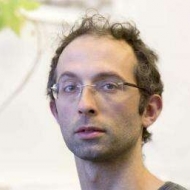How do bacteriophages and bacteria interact?
Bas Dutilh explains what he intends to do with this grant: “There are a billion times more viruses on Earth than stars in the universe. The most numerous are the bacteriophages, viruses that infect bacteria. For as long as bacteria have existed, they have been engaged in an evolutionary battle: bacteriophages infecting bacteria; bacteria trying to prevent infection. This global equilibrium is billions of years old and possibly the most complex system known to mankind. With interest in bacteriophages increasing in both fundamental and applied research, an important question arises: can we predict how the interaction between bacteriophages and bacteria will evolve under different conditions? With this ERC Consolidator we will measure the many factors involved by analysing large DNA datasets from all over the world. Using biological knowledge, we will develop new artificial intelligence technology to model these factors and predict the evolution of bacteriophage host-range.“

Late effects of childhood cancer treatment

Treatment of childhood cancer kills tumour cells but also damages DNA in healthy cells. This can result in specific DNA changes accumulating in these cells,’ explains Ruben. Most of these changes have no effect on the functioning of the cells, but sometimes a DNA error occurs that causes a second cancer to form. It’s important to find out which components of the treatment are responsible for these specific DNA errors and whether we can replace those components’. For his research into second cancers Ruben focuses on leukemia. This ERC grant gives him the opportunity to explore this.

